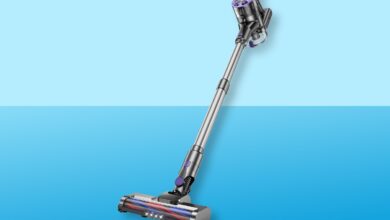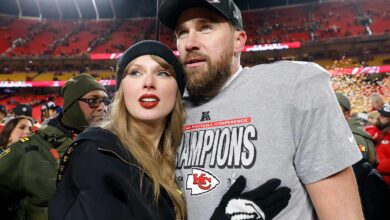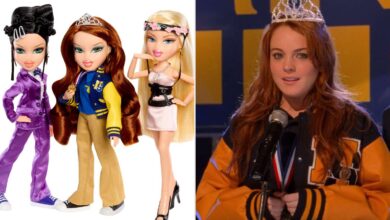Gatorade And Cheetos Will Phase Out Artificial Dyes in Favor of Natural Colors
:max_bytes(150000):strip_icc():format(jpeg)/flamin-hot-cheetos-100225-bee6aff2a436420d9fd7e32d9bbb920c.jpg)
NEED TO KNOW
- PepsiCo will slowly phase out its artificial dyes in products like Gatorade and Cheetos while still trying to keep familiar colors and flavors, the company announced
- Tostitos and Lay’s will become the first PepsiCo brands to make this shift, launching tortilla and potato chips with natural dye later this year
- Around 40% of PepsiCo products are currently made with synthetic dyes, and the company hopes to switch most of its products to natural dyes in the next 2-3 years
PepsiCo is planning to slowly phase out artificial dyes in products like Gatorade and Cheetos — but is still trying to keep its snacks colorful.
According to the Associated Press, PepsiCo, which manufactures Doritos, Cap’n Crunch cereal, Funyuns, Mountain Dew, and dozens of other food products, first announced in April this year that it would speed up its plan to use natural colors in its foods and beverages in the place of synthetic dyes.
Tostitos and Lay’s will become the first PepsiCo brands to make this shift. According to the company, per AP, the brand’s revamped tortilla and potato chips will hit grocery store shelves later this year, swapping out synthetic colors like Yellow 5, Yellow 6, Red 40 and Blue 1 for carob powder. More products made with the natural dyes will debut in the months following.
Around 40% of PepsiCo products are made with synthetic dyes, the company shared per the AP.
PEOPLE has reached out to PepsiCo for comment.
Luke Sharrett/Bloomberg via Getty
Per the AP, PepsiCo has said that it will likely take multiple years to swap out its artificial dyes, as it tests new ingredients, reviews consumers’ responses to new recipes and awaits approvals for the new natural dyes from the U.S. Food and Drug Administration (FDA).
“We’re not going to launch a product that the consumer’s not going to enjoy,” Chris Coleman, PepsiCo’s senior director for food research and development in North America, told the AP. “We need to make sure the product is right.”
According to Coleman, it can take two to three years to reformulate a product to swap artificial dyes for natural colors. There are a number of factors for the company to consider when developing its recipes, including finding natural ingredients that have stable shelf lives and don’t change the flavor of the item.
When it comes to other PepsiCo products, recipe developers are experimenting with paprika and turmeric to create the bright reds and oranges used in snacks like Flamin’ Hot Cheetos, as well as dyes from purple sweet potatoes and carrots to color drinks like Mountain Dew and Cherry 7Up, per the AP.
“We eat with our eyes,” Damien Browne, the vice president of research and development for PepsiCo’s beverage division, told the AP. “If you look at a plate of food, it’s generally the different kinds of colors that will tell you what you would like or not.”
Gabby Jones/Bloomberg via Getty
Artificial food dyes have been a hot topic in recent months. Some government officials, including HHS Secretary Robert F. Kennedy Jr., have been pushing for a ban on artificial food dyes. In April. Kennedy and FDA Commissioner Marty Makary announced plans to phase out the remaining eight petroleum-based synthetic dyes, claiming that food makers have been allowed to “mass poison” American children.
PepsiCo says that its decision to design its products with natural food coloring in mind stems mostly from consumers.
“Consumers are definitely leading, and I think what we need to do is have the regulators catching up, allowing us to approve new natural ingredients to be able to meet their demand,” Browne said.
Never miss a story — sign up for PEOPLE’s free daily newsletter to stay up-to-date on the best of what PEOPLE has to offer, from celebrity news to compelling human interest stories.
The company told the AP that it began seeing some customers ask for products without artificial dyes or colors more than 20 years ago. In 2002, PepsiCo launched its Simply brand, which offers natural versions of its other products, and has also started selling dye-free organic drinks like Gatorade.
“We’re looking for those little signals that will become humongous in the future,” Amanda Grzeda, PepsiCo’s senior director of global sensory and consumer experience, told AP about its consumers’ preferences.
A number of other food giants have taken similar measures. In April, Kraft Heinz announced that it will begin to phase out food coloring from its products, and will not roll out any new products that include them.
According to Grzeda, PepsiCo aims to create products that don’t force its customers to pick between great flavors and natural colors.
“That’s where it requires the deep science and ingredients and magic,” she added to the AP.
Credit to Nypost AND Peoples



